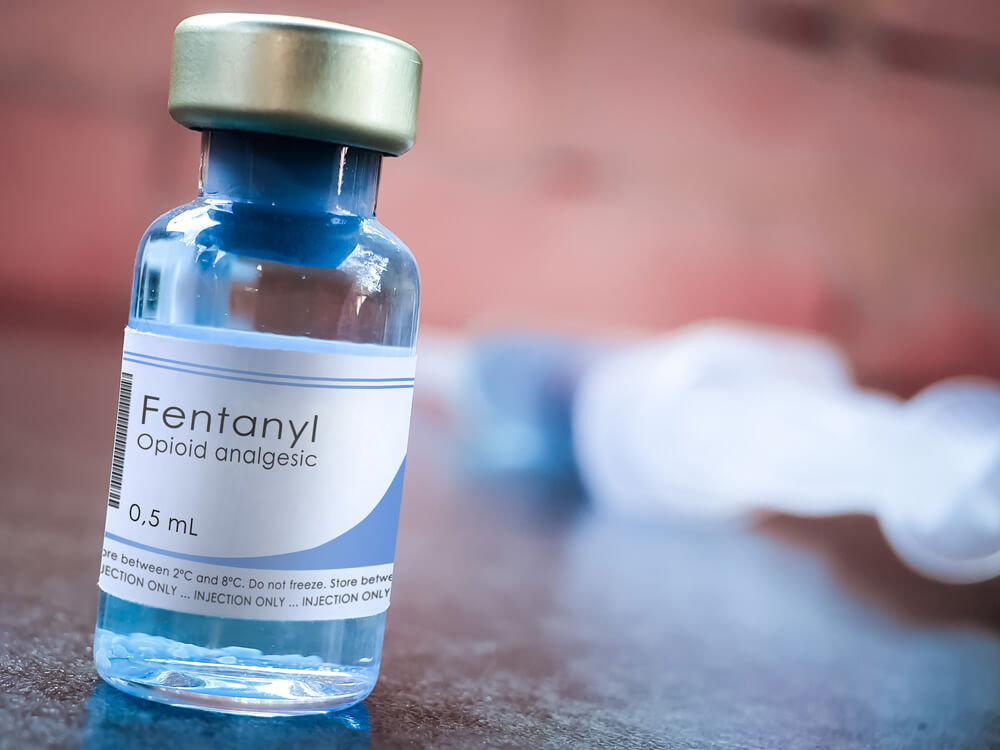Fentanyl Withdrawal Timeline: What to Expect When You Quit Fentanyl

Fentanyl Withdrawal Symptoms and Timeline
Fentanyl is a synthetic opioid drug similar to Morphine but up to 100 times more potent. Typically, Fentanyl is prescribed by medical professionals to treat severe pain. However, Fentanyl and other synthetic opioids are manufactured and sold illegally.
Because of its high potency, Fentanyl can be incredibly addictive. In fact, according to the American Addiction Center, Fentanyl is among the most common drugs involved in overdose deaths in the U.S.
Those who become addicted to Fentanyl and try to abruptly discontinue the use of the drug or dramatically reduce their dose can experience Fentanyl withdrawal symptoms. Withdrawal may range from mild to severe, depending on the length of drug use, the frequency of use, the type of drug used, and any co-occurring disorders. Drug withdrawal symptoms can include:
- Diarrhea and vomiting
- Nausea
- Increased heart rate
- Muscle pain or bone pain
- High blood pressure
- Insomnia
- Anxiety
- Increased body temperature
- Sweating
- Chills
The severity, onset, and duration of withdrawal symptoms will depend on the extent of Fentanyl use, the dose taken, and how often it was used. Studies show that individuals withdrawing from short-acting opioids and immediate-release formulations of medications like Morphine, Fentanyl, Hydrocodone, and Oxycodone experience symptoms eight to 24 hours after the last use. Usually, the symptoms peak in intensity 36 to 72 hours after the last dose and may continue for seven to 10 days or longer.
How Long Does Fentanyl Withdrawal Last?
As with other opioid drugs, the length of Fentanyl withdrawal varies per individual. Usually, withdrawal symptoms improve within a few weeks with the proper healthcare support and counseling. However, some people may continue to experience symptoms of withdrawal for a month or longer. The Fentanyl withdrawal timeline depends on a person’s genetics, underlying health conditions, co-occurring disorders, and addiction severity.
Can Fentanyl Withdrawal Symptoms Be Fatal?
Typically, Fentanyl withdrawal is not life-threatening. However, symptoms can be highly uncomfortable for those going through it. In most cases, Fentanyl withdrawal requires medical detox, emotional support, and aftercare from an addiction treatment center. If you or a loved one struggles with drug addiction, consider seeking help from an inpatient treatment program, residential treatment, outpatient treatment, or intensive outpatient treatment.
Discover ways to prevent an overdose here:
What Makes Fentanyl Withdrawal Easier?
Fentanyl withdrawal may be more comfortable to experience from a drug addiction treatment facility. Here, addicts and users can go through medical detox, monitor for safety, and receive the support they need.
Studies show that medical detox is an effective treatment method for addiction. Medical detox includes the use of medications to help ease the symptoms of withdrawal. Medications used for medical detox may consist of:
- An opioid agonist: Methadone stimulates the same receptors in the brain as Fentanyl but doesn’t create the high. When taken as prescribed, Methadone blocks cravings and alleviates withdrawal symptoms.
- A partial opioid agonist: Buprenorphine attaches to the same receptors that Fentanyl does but only partially activates to help ease withdrawal symptoms and cravings
Once medical detox is complete, patients can engage in various therapy treatments such as individual therapy, cognitive behavioral therapy, music therapy, and more. These treatment methods help individuals feel more comfortable and may make withdrawal more manageable.
 Fentanyl Detox and Rehab at WhiteSands
Fentanyl Detox and Rehab at WhiteSands
If you or a loved one suffers from addiction, consider seeking help from WhiteSands Alcohol and Drug Rehab. This Florida treatment facility provides more than industry standards require to ensure patients have a positive experience during treatment. Through relapse prevention and life skills training, WhiteSands helps individuals achieve sober living on the road to recovery.
If you or a loved one needs help with abuse and/or treatment, please call the WhiteSands Treatment at (877) 855-3470. Our addiction specialists can assess your recovery needs and help you get the addiction treatment that provides the best chance for your long-term recovery.
